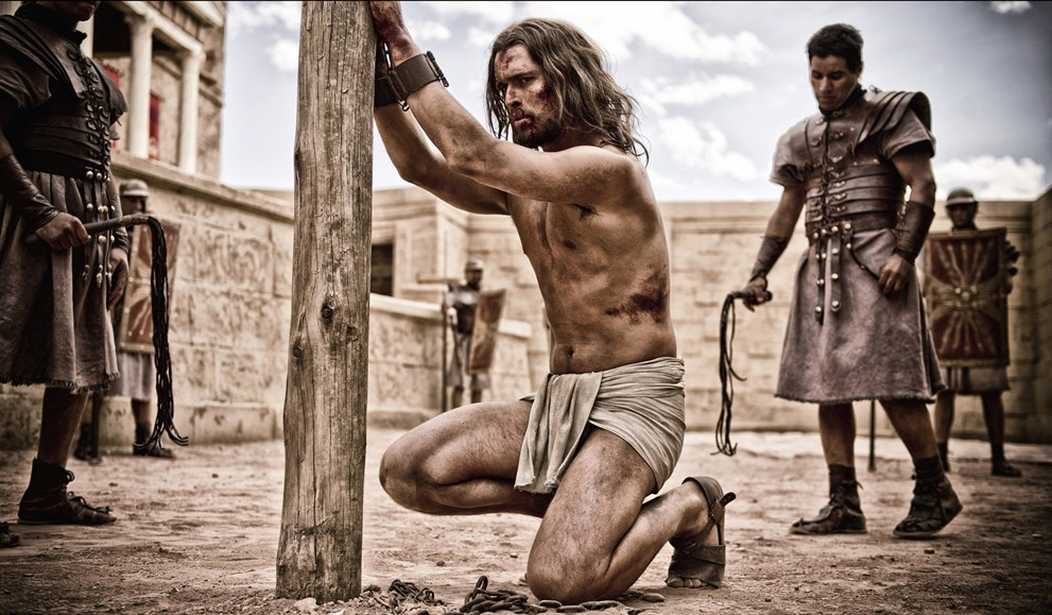Author’s Note: Interested readers can find all previous volumes of this series here. News Flash: The first 56 volumes are compiled into a book titled “Bible Study For Those Who Don’t Read The Bible.”
Thanks for joining us this New Year’s weekend as we conclude our two-part study of the Messianic prophecies found in the Hebrew Bible/Old Testament.
If you missed reading Part One, now would be a good time to catch up and help make Part Two more meaningful. But here is a quick recap: We discussed what Jesus said about the ancient Hebrew Scriptures relevant to His identity and the Christmas-themed passages heralding his lineage and birth. Then, our VIP guest, Rabbi Jonathan Cahn, explained the overall meaning of the prophecies.
Today, we begin with what is only a sample of Messianic prophecies about who Jesus was (is) and what He endured — referencing fulfillment in the New Testament. And again, we are honored that Rabbi Cahn is joining us to review Isaiah 53 — widely considered the most complete and profound Messianic prophecy.
The purpose of this brief two-part study is to encourage further research about these enthralling Messianic prophecies that non-believers downplay, twist, and rationalize to not be about Jesus. You decide:
Messiah's throne will be anointed and eternal (Psalm 45:6-7) (Daniel 2:44) fulfilled: (Luke 1:33) (Hebrews 1:8-12).
A messenger would prepare the way for Messiah (Isaiah 40:3-5) fulfilled: (Luke 3:3-6).
Messiah would be declared the Son of God (Psalm 2:7) fulfilled: (Matthew 3:16-17).
Recommended
Messiah would be a priest in the order of Melchizedek (Psalm 110:4) fulfilled: (Hebrews 5:5-6). (For more about Melchizedek, see Vol.1 and Vol. 50.)
Messiah would be called King (Psalm 2:6) (Zechariah 9:9) fulfilled: (Matthew 27:37) (Mark 11:7-11).
Messiah would be betrayed (Psalm 41:9) (Zechariah 11:12-13) fulfilled: (Luke 22:47-48) (Matthew 26:14-16).
Messiah would be spat upon and struck (Isaiah 50:6) fulfilled: (Matthew 26:67).
Messiah's hands and feet would be pierced (Psalm 22:16) (Zechariah 12:10) fulfilled: (John 20:25-27).
Messiah's bones would not be broken (Exodus 12:46) (Psalm 34:20) fulfilled: (John 19:33-36).
Messiah would be forsaken by God (Psalm 22:1) fulfilled (Matthew 27:46).
Messiah would be resurrected from the dead (Psalm 16:10) (Psalm 49:15) fulfilled: (Matthew 28:2-7) (Acts 2:22-32).
Messiah would ascend to heaven (Psalm 24:7-10) fulfilled: (Mark 16:19) (Luke 24:51).
Messiah would be seated at God's right hand (Psalm 68:18) (Psalm 110:1) fulfilled: (Mark 16:19) (Matthew 22:44).
Messiah would be a sacrifice for sin (Isaiah 53:5-12) fulfilled: (Romans 5:6-8).
Isaiah’s prophecy of the Messiah and the Messianic concept, “sacrifice for sin,” is addressed within today’s lesson by our guest Jonathan Cahn — a Messianic Jewish rabbi, Hope of the World ministries leader, and No. 1 best-selling Harbinger series author. In an email, Rabbi Cahn wrote a personal testimony about Isaiah 53 and how the chapter impacted his life:
“I first picked up the Hebrew Scriptures as a Jewish atheist. I had been raised as most Jewish people are raised to believe that the rabbi from Nazareth, Yeshua, known to the English-speaking world as ‘Jesus,’ was forbidden territory – and the one thing that would cause a Jew to lose his identity. So what I found when I picked up the Hebrew Scriptures was, to say the least, shocking.
“To find out that the Jewish Messiah had to be born in Bethlehem, had to ride a donkey into Jerusalem, had to appear before the second Temple was destroyed (70 A.D.) and had to become a ‘light to the Gentiles,’ was one thing. But when I opened up Isaiah 53 it was a whole other story. It wasn’t only a few verses of prophecy but an entire chapter – actually more than a chapter. It was as vivid a summation of the meaning of this Jesus of Nazareth as anything in the New Testament – and yet from the Hebrew Scriptures.
“It was so vivid that in the Jewish rabbinical world, it has become, for all intents and purposes, a taboo subject. And yet, the ancient rabbis wrote of Isaiah 53 and declared that it was unequivocally describing the Jewish Messiah.
“So what does Isaiah 53 say of the Messiah? First, the most radical thing, he will be rejected by His own people (at least at first). Thus, the argument that if Jesus were the Messiah, then the Jewish people would have accepted him – is turned on its head. Second, he would not come (at least at first) as a conquering hero but as a suffering redeemer, be wounded, scourged, struck, and crushed. Third, he would die and be killed as a sacrificial lamb. Fourth, his sufferings and death would be for our sins and transgression. In this, the sacrificial system of Israel reaches its climactic fulfillment. Fifth, by his sufferings and death, we would be healed, forgiven, atoned for… saved. And finally, somehow, as evident by the chapter's end, he will be alive again (as in a resurrection).
“The fact is only one person in Jewish history, not to mention world history, matches and fulfills all the requirements of Hebrew prophecy. And Isaiah 53 was written 700 years before that one person appeared on the earth.
“And thus, as a Jewish atheist, whether I liked it or not, I could not ignore what now confronted me from the pages of the Hebrew Scriptures.
“If the Jewish Messiah, the hope of Israel, was to come . . . then he already has. And it was that fact that changed my life.”
On behalf of Townhall readers, I thank Rabbi Cahn for his considerable contribution to both studies. Now, if possible, you can begin the new year by spending three minutes reading the 383 words of Isaiah 53, with the first verse posing a life-changing question:
“Who has believed our message and to whom has the arm of the Lord been revealed?” (Isaiah 53-1). (See Vol. 3 for more discussion about Isaiah 53.)
Finally, I wish all Townhall readers a blessed New Year. My 2022 prayer can be shared throughout the world: “Heavenly Father: Guide me to glorify you.” Amen!
Myra Kahn Adams is a media producer and conservative political and religious writer with numerous national credits. Her new book, “Bible Study For Those Who Don’t Read The Bible,” reprints the first 56 volumes of this popular study. Myra is also Executive Director of SignFromGod.org, a ministry dedicated to Shroud of Turin education. Contact: MyraAdams01@gmail.com or Twitter @MyraKAdams.

























Join the conversation as a VIP Member